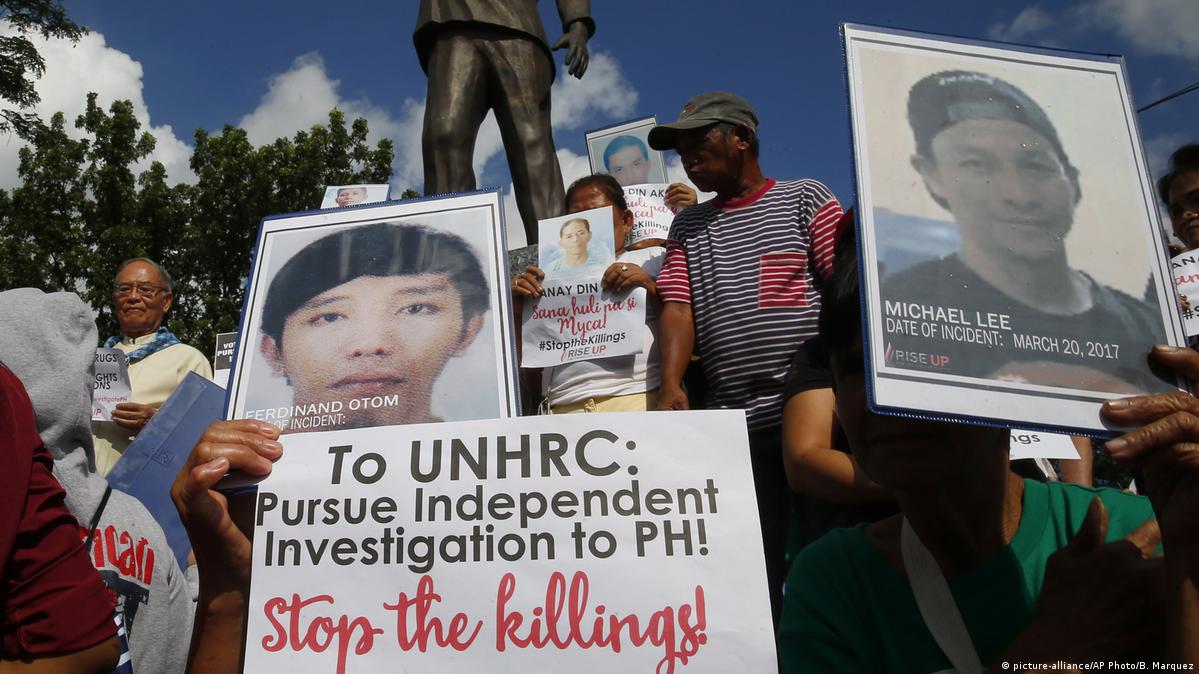International Criminal Court Jurisdiction Against Human Rights Violations by Philippine President After Withdrawal from Rome Statute
Main Article Content
Abstract
Rodrigo Duterte who has ordered the police to execute drug addicts who do not want to be arrested. However, the assailant was still shot despite surrendering to arrest, the police on behalf of the anti-drug unit went to people's homes and did so because of the policy of "who gets killed, the police get paid". The crime that has been committed by Rodrigo Duterte under ICC jurisdiction is giving orders. to the police and the public to carry out extrajudicial killings of individuals involved in narcotics and to protect those who carry out their orders, so that Rodrigo Duterte is judged guilty and responsible in accordance with Article 25 paragraph 3 (b), (c), (d) the Rome Statute Crimes against humanity are among the criminal jurisdictions of the ICC. Although the Philippines withdrew from the Rome Statute, it did not prevent the International Criminal Court (ICC) from reviewing the case involving Philippine President Rodrigo Duterte. The Rome Statute provides for withdrawals, in particular article 127 , paragraphs (1) and (2) of the 1998 Rome Statute.
Article Details

This work is licensed under a Creative Commons Attribution-NonCommercial-ShareAlike 4.0 International License.
The Authors(s) retain copyrights of the Article published on Semarang State University Undergraduate Law and Society Review. However, before publishing, it is required to obtain written confirmation from Author(s) in order to ensure the originality (Author Statement of Originality). The statement is to be signed by at least one of the authors who have obtained the assent of the co-author(s) where applicable. This work licensed under a Creative Commons Attribution-NonCommercial-ShareAlike 4.0 International (CC BY-NC-SA 4.0).
References
Campbell, M. (2018). Working Paper: Human Rights, the Sustainable Development Goals and Gender Equality. The British Academy. Available at https://www.thebritishacademy.ac.uk/publications/justice-equality-working-paper-human-rights-sustainable-development-goals-gender-equality/
Diantha, I. M. P. (2004). Hukum Pidana Internasional: dalam Dinamika Pengadilan Pidana Internasional. Jakarta: Penada Media.
Human Rights Watch. (2019). “Extrajudicial Killings in Philippines”, Online, retrieved from https://www.hrw.org/world-report/2019/country-chapters/philippines.
International Crimal Court. (2002). How the Court Work, Online, retrieved from www.icc-cpi.int. http://www.icc-cpi.int/about/how-the-court-work.
Johnson, D. T., & Fernquest, J. (2018). Governing through killing: The war on drugs in the Philippines. Asian Journal of Law and Society, 5(2), 359-390.
Kenny, P. D., & Holmes, R. (2020). A new penal populism? Rodrigo Duterte, public opinion, and the war on drugs in the Philippines. Journal of East Asian Studies, 20(2), 187-205.
Lanfer, A. (2010). Extrajudicial killings: A human rights crisis. Observer: A Journal on Threatened Human Rights Defenders in the Philippines, 2(2), 4-6.
Lasco, G., & Yu, V. G. (2021). “Shabu is different”: Extrajudicial killings, death penalty, and ‘methamphetamine exceptionalism’in the Philippines. International Journal of Drug Policy, 92, 103168.
Leal Filho, W., Marisa Azul, A., Brandli, L., Lange Salvia, A., Özuyar, P. G., & Wall, T. (Eds.). (2021). Peace, Justice and Strong Institutions. Cham: Springer International Publishing.
News Indonesia. (2019). “Karena diselidiki, Presiden Duterte tarik Filipina dari Mahkamah Pidana Internasional”, Online, retrieved from https://www.bbc.com/indonesia/dunia-43398825.
Nusantara, M. A. (2021). Development Planning For Prosperity Sebuah Kajian Pustaka Terstruktur (Systematic Literature Review). Kybernan: Jurnal Studi Kepemerintahan, 4(2), 206-225.
Parthiana, I. W. (2010). Hukum Pidana Internsional. Bandung: Yrama Widya.
Parthiana, W. (1990). Pengantar Hukum International. Bandung: Mandar Maju.
Prasatya, D. (2013). Eksistensi Mahkamah Pidana Internasional (International Criminal Court) dalam Penyelesaian Kasus Tindak Pidana Terorisme, Jurnal Ilmu Hukum Legal Opinion, 2(1).
Salsabila, A., & Purwandoko, P. H. Penanganan Pengungsi Internasional dalam Kerangka Implementasi Tujuan Pembangunan Berkelanjutan (TPB) di Indonesia. BELLI AC PACIS, 5(1), 9-17.
Sarlina, V. (2018). Respon Amnesty International Terhadap Pemberantasan Narkotika dan Obat–Obatan Berbahaya (Narkoba) di Filipina Pada Masa Rodrigo Duterte, eJournal Hubungan Internasional, 6(2).
Sefriani, S. (2007). Yurisdiksi ICC terhadap Negara non Anggota Statuta Roma 1998. Jurnal Hukum IUS QUIA IUSTUM, 14(2).
Sulistia, T. (2007). Peran Internasional Criminal Court dan Kejahatan Terhadap Kemanusiaan Oleh Militer. Indonesian Journal of International Law, 5(1), 2.
Ufran, U. (2019). Penyelesaian Pelanggaran Hak Asasi Manusia Berat Melalui Mekanisme Pengadilan Nasional dan Pengadilan Pidana Internasional. Jurnal IUS Kajian Hukum dan Keadilan, 7(1), 170-181.
